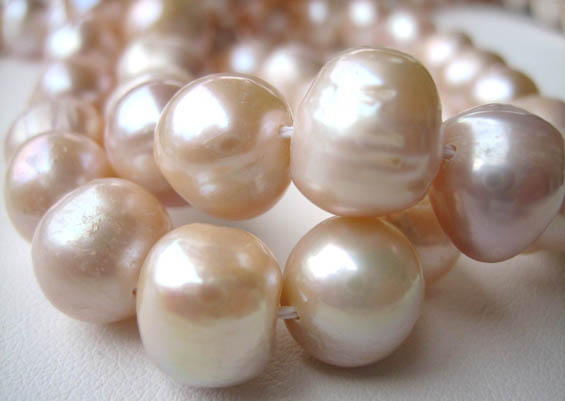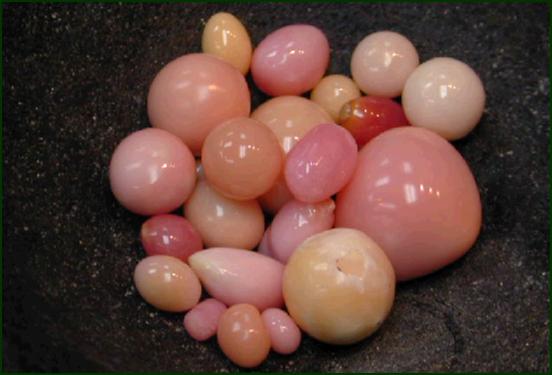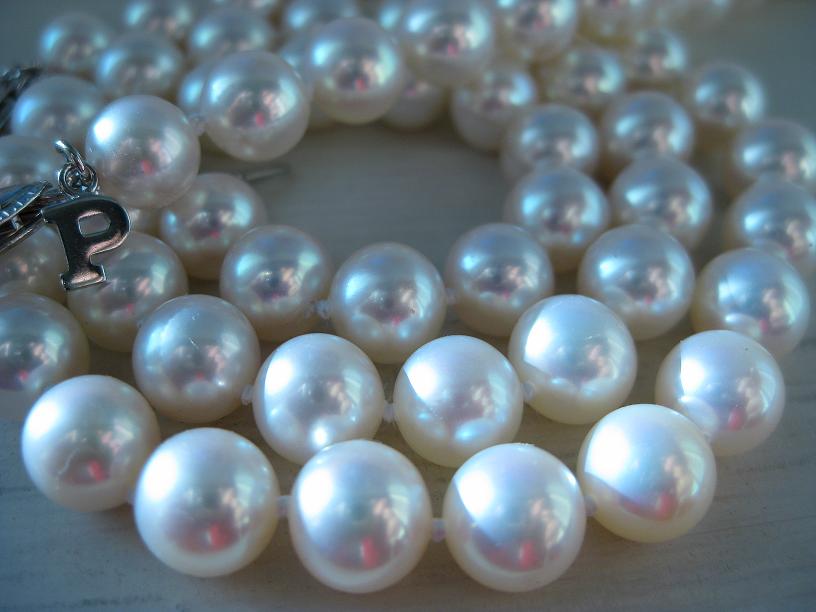We’ve all been admiring them in the form of delicate earrings, shiny strands or beautiful bracelets. But not everyone knows how pearls are produced nowadays and how they used to be made a couple of centuries ago. Pearls have always been a symbol for power, integrity and timeless elegance. There are many interesting things to find out about these gemstones, including their history and their harvesting.

One of a kind
Besides their stark beauty, there’s something else that sets pearls apart from other gemstones. Pearls are the only jewels that are made by living animals. If a grain of sand enters an oyster or a mollusk, they start covering the grain in layer after layer of nacre. They do this in order to protect their soft tissue from being damaged by the abrasive grain.
Mollusks live on
While oysters can only be used to produce pearls once, mollusks are different. Once the pearl farmers harvest the pearls from the mollusks, they can re-implant them and start the process all over again. Unfortunately, oysters are killed once the pearls are harvested.
The color
Pearls vary in color. They can be white, cream, beige and even black, purple or gold. This depends on the inside of the shell that produces them.

Natural pearls are becoming extinct
We live in a day and age which spoils us with affordable cultured pearls. This means that pearl farmers insert a bead in an oyster to help them produce a pearl. Cultivated pearls are easier to keep under control than natural ones are. Water pollution and tsunamis are only some of the reasons that are threatening natural pearls.
There are no two identical pearls
Even though the differences cannot be easily spotted, no two pearls are identical. Likewise, no pearl is perfectly spherical. Each gemstone has a tiny imperfection, whether it’s a small, almost imperceptible bump, or a very fine crack. This is one of the things to look out for when you’re buying pearls and you’re not sure if they’re authentic or not. Anything that looks too perfect is probably fake.
Periculture
Pearls are so famous that more and more people are getting involved in producing pearls. And pearl farming has even got its own name: “periculture”. It might sound profitable, but it also requires a lot of work and patience. Pearls don’t develop over-night. It takes an oyster anywhere from twelve months to over two years to perfect a pearl.

The most expensive cocktail in history
Legend has it that Marc Antonius once challenged Cleopatra to spend a small fortune on a single meal. The Egyptian queen didn’t hesitate to prove she could win the challenge and invited Antonius to dinner. When the second course was served, a glass of white vinegar was placed in front of her, leaving her companion wonder what she was up to. Cleopatra then took off one earring and dropped it in the vinegar. The pearl dissolved and she drank the unique cocktail, winning the bet.
Persians liked their pearls
How do we know this? Scientists have discovered a fragment from a pearl jewelry in a sarcophagus belonging to a Persian princess. Pearls are known to have been influencing several civilizations throughout history. Persians believed that pearls symbolized purity, power and integrity, which might have been the reason for including the precious gem in the sarcophagus.